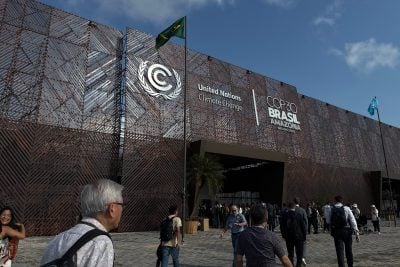Namibian president Hage Geingob died in Windhoek on Sunday at the age of 82, weeks after announcing that he had been diagnosed with cancer.
Geingob’s vice-president, Nangolo Mbumba – also aged 82 – was immediately sworn-in as the country’s new leader. He will serve the last year of Geingob’s term in office, but will not stand in elections scheduled for November.
Mbumba praised Geingob for his role in building the country’s institutions and entrenching stability. “It is poignant and reassuring to note that today, even in this time of loss, our nation remains calm and stable,” the new president said at his inauguration ceremony.
Both his supporters and opponents agreed that Geingob was one of Namibia’s most important political personalities of recent decades, helping to forge the southern African nation’s identity.
During the long struggle against apartheid South Africa’s occupation of Namibia, Geingob spent some 27 years in exile. From 1975 until 1989, he was based in Lusaka as director of a UN-backed educational body, the United Nations Institute for Namibia, which helped trained Namibians for roles in a future post-liberation government.
Geingob then played a key role in drafting the country’s constitution in the run-up to independence in 1990, and was appointed as prime minister under President Sam Nujoma. He served in this role for 15 years in total across two separate spells. In 2015, he won the presidency with 87% of the vote and was re-elected five years later, albeit with a reduced majority.
Investment record
Geingob’s presidency will be remembered fondly by most foreign investors, especially in the energy sector. Companies in various energy-related industries have flocked to Namibia in recent years. As well as its wealth of natural resources, the political stability overseen by Geingob has been a major attraction.
Some of the world’s largest oil and gas companies were persuaded to carry out exploratory drilling in the waters off Namibia during Geingob’s presidency. In 2022, Shell and Total both reported massive oil discoveries. While there will inevitably be a span of several years at least between discovering oil and actually beginning production, Namibia now has a realistic opportunity to become a globally significant hydrocarbons player.
In handing a lifetime achievement award to Geingob last September, the African Energy Chamber emphasised that the president had been an important factor in the country’s successful efforts to unlock its potential. “Under Geingob’s leadership, Namibia has earned a reputation for good governance, which has contributed to continued investment and exploration since the 2022 discoveries,” it said in a statement.
The AEC further noted that Geingob had avoided lumbering investors with red tape or engaging in hostile negotiating tactics. “Geingob has taken a proactive approach to avoiding these stumbling blocks, greatly increasing the likelihood of positive outcomes for his country and his people,” it said.
As well as oil and gas, Namibia has also come to be seen as one of the most promising locations in Africa for producing ‘green hydrogen’, in which solar energy is used to power the process of electrolysis that separates hydrogen from oxygen. Green hydrogen can potentially replace fossil fuels in various industrial applications.
Since 2021, a massive green hydrogen scheme spearheaded by Hyphen Hydrogen Energy – a company based in Namibia but largely owned by German investors – has begun to take shape. The $10bn project will be built in several stages, with an eventual aim of producing 350,000 tonnes of green hydrogen annually from a 3-gigawatt electrolyser facility.
Several European countries have taken note, regularly dispatching envoys to negotiate cooperation agreements with Namibia in the hope of securing offtake deals. European Commission President Ursula von der Layen managed to secure a strategic partnership with Namibia on sustainable raw materials value chains and renewable hydrogen. Last October, she noted that “Namibia is becoming a front-runner in the green hydrogen space”.
Geingob’s successors will have the task of ensuring that plans are converted into concrete developments. In doing so, they will be relying on the foundations established by the late president.
Elections in November
Elections will be held in November as planned, with the new president due to take office in March 2025. The ruling SWAPO party has already selected Netumbo Nandi-Ndaitwah, who was deputy prime minister until Geingob’s death but now replaces Mbumba as vice-president, as its candidate.
Given SWAPO’s political dominance – it has easily won every presidential and parliamentary election since independence – Nandi-Ndaitwah is the clear favourite to secure victory in November and become Namibia’s first female president.
Want to continue reading? Subscribe today.
You've read all your free articles for this month! Subscribe now to enjoy full access to our content.
Digital Monthly
£8.00 / month
Receive full unlimited access to our articles, opinions, podcasts and more.
Digital Yearly
£70.00 / year
Our best value offer - save £26 and gain access to all of our digital content for an entire year!

 Sign in with Google
Sign in with Google 



